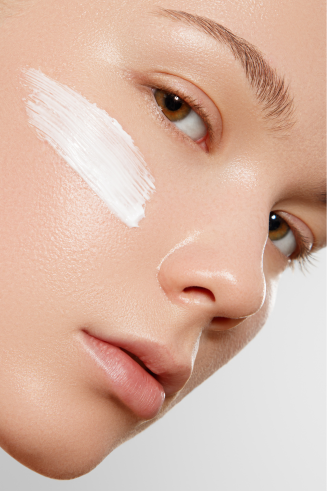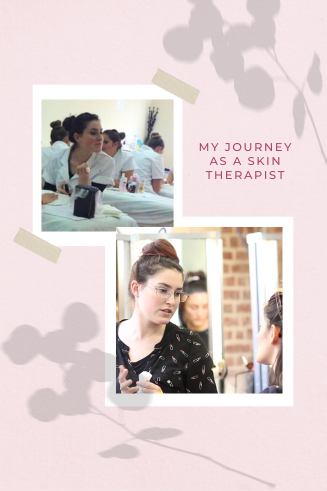Understanding Natural, Organic, and Clean Beauty: Definitions and Differences
Confused about the terms natural, organic, and clean beauty? Let me walk you through the definitions and differences between these popular cosmetic industry buzzwords to make more informed choices about your next beauty products purchases.
The beauty industry has gone through several trends in the past few years, from “natural” to “organic” to “clean.” It sometimes feels that our heads are spinning with all the new words to keep track of. I hear you! If moving to another world has taught me anything is that you always have to make sure you’re on the same page, I work with Clean beauty products, some are natural, some organic…Let me cut through the noise for you, so that you what’s what and we’re all on the same page.
Each term has its definition and criteria, and understanding them is crucial in making informed choices about the products we use. This blog post will explore the differences between these terms, their regulations, and their significance for both consumers and the environment. There is no planet B so I like to think that, if we have capacity, we take the environment into consideration for as many decisions as we can.
Defining Natural in Cosmetics
The term “natural” can mean different things depending on the context. In the cosmetics industry, there are four ways to define natural ingredients:
- The purest definition is when the ingredient comes from natural resources and retains the same chemical structure and shape as it is found in nature.
- The second definition is when the ingredient comes from natural resources, but its chemical structure and shape have been altered.
- The third definition is when an ingredient is synthetically obtained but is identical to what is found in nature.
- The last definition is when nature-identical ingredients are chemically identical to natural ingredients, but they’re created synthetically.
While all four definitions have their pros and cons, it’s essential to note that the term “natural” is not yet regulated and it can be tough to know, when reading a label, which definition was used during the formulation process.
However, some organizations have established certification programs for natural cosmetics, such as the Natural Products Association (NPA), COSMOS-standard, and Ecocert and Natrue. These programs set specific criteria that products must meet to be considered natural, such as minimum percentages of natural and organic ingredients, restrictions on certain chemicals, and some sustainability proofs.
Understanding Organic Cosmetics
The term “organic” refers to ingredients that are farmed following organic regulations. Yet, it’s crucial to note that not all ingredients in a product need to be organic for said product to be labelled organic. The required percentage of organic ingredients varies from country to country. In the US, for example, products need to contain at least 95% organic ingredients to be labelled “organic,” while in Europe, it’s 95% natural ingredients.
The term "organic" is regulated, and some certifications are available, such as BioGro NZ, Australian Certified Organic (Australia), and Cosmos Organic (worldwide). These certifications ensure that products meet specific criteria, such as using organic farming methods, not using harmful chemicals, and sustainable practices.
Do keep in mind that all certified products are organic but there are some small businesses who offer organic products bit do not have the financial means to get organic certified.
Understanding Clean Beauty
Clean beauty is a term used to describe products made with ingredients that are safe for humans and the environment. It also stands for transparency about sourcing and manufacturing practices. Clean beauty products avoid using harmful chemicals, such as parabens, phthalates, and sulfates, and tend to use natural and organic ingredients wherever possible. More often than not, their packaging often takes sustainability into consideration. Yes, there are some trade-offs with clean beauty products, but which product doesn’t?
Unlike natural and organic, clean beauty is not (yet) a regulated term. Still, many brands have created their own criteria and standards through “dirty lists” or “no-go ingredients” showcasing transparency to their customers as to what they do not consider “clean” ingredients. Some of these brands are certified by organizations such as the Environmental Working Group (EWG) and the Campaign for Safe Cosmetics. If you feel like you want to know more on the topic of clean beauty, have a read here.
Conclusion
The terms “natural,” “organic,” and “clean” are all used to refer to different categories of products and are also used in marketing as a sales incentive yet two-thirds of these terms aren’t regulated. “Natural” and “Clean” can be viewed as a free-for-all attention grabber words on the packaging.
As covered earlier, while organic is a regulated term, natural and clean are not, and consumers need to be vigilant when choosing products labelled with these terms. It is paramount to understand their definitions and regulations in order to do so.
Some brands are genuinely natural and clean, and certifications from reputable organizations can help consumers make informed choices about the products they use. I pride myself in demystifying these terms on all my communication channels (such as Instagram, Facebook or my mailing list). My clients know where they stand when they book in for a facial, a massage or even a skin 101 because I vouch for each product and brand I work with.
By understanding the differences between “Natural”, “Organic” and “Clean”, consumers can choose products that align with their values and promote sustainable practices in the beauty industry.
Thus taking a positive step towards change. Because even if we’re just one grain of sand, together, as consumers, we have the power to be the whole beach.







